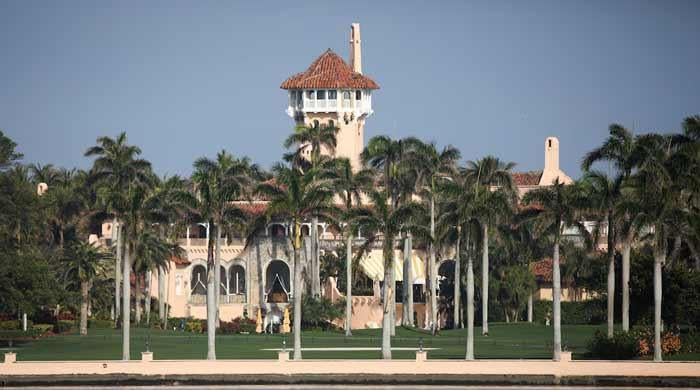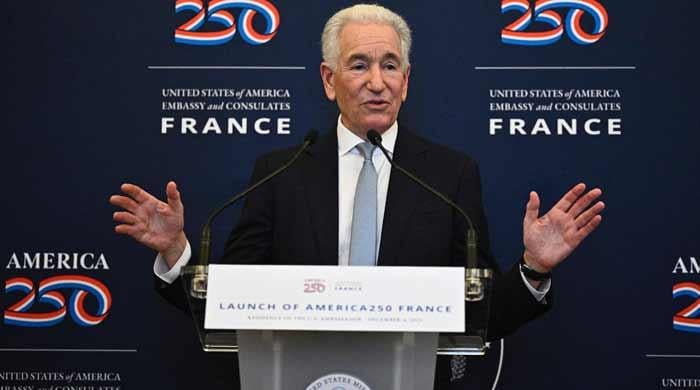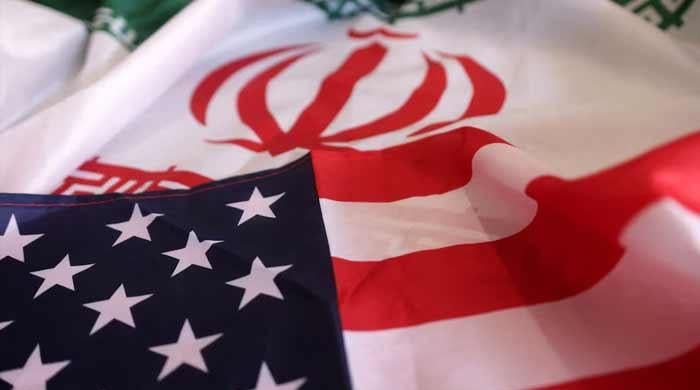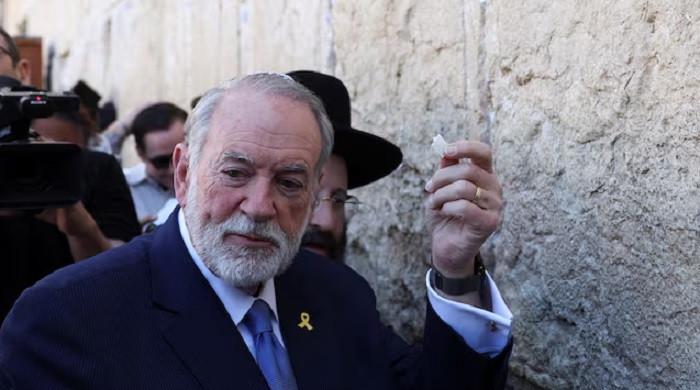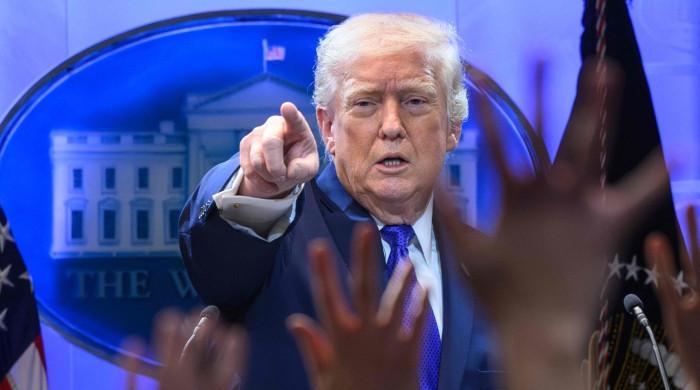US favourability falls since Trump return, shows survey
Favourability of US has dropped in 15 of the 24 countries surveyed, says Pew Research Center
June 11, 2025
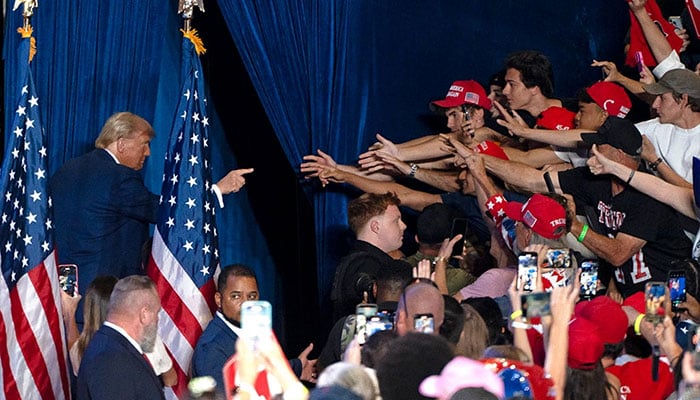
The image of the United States has deteriorated sharply in much of the world since President Donald Trump's return, with low marks both on his character and policies, a global survey said Wednesday.
The Pew Research Center found that favourability of the United States has dropped in 15 of the 24 countries surveyed.
Trump received his lowest marks in neighboring Mexico, which he has long disparaged and pressed on migration, with 91% of Mexicans saying they did not have confidence Trump would do the right thing on world affairs.
Trump led to a downward shift in perceptions of the United States as a whole.
In both Mexico and fellow neighbor Canada, which Trump has provocatively said should be the 51st US state, majorities now see the United States unfavourably after seeing the country favourably last year when Joe Biden was president.
Views of the United States also darkened in most of Europe, with an especially sharp drop in Poland, a frontline ally of Ukraine, as Trump reduces US support for Kyiv and seeks a negotiated solution with Russia.
Sweden, which entered NATO under Biden in the wake of the Ukraine invasion, gave the worst marks to the United States among all publics surveyed, with 79% having a negative opinion of the country.
The survey found that on average majorities from all countries surveyed disagreed with all of Trump's key global policies including on Ukraine, Gaza, immigration and climate change.
80% called Trump arrogant and only 28% found him honest.
Not as bad as first term
Views of the US remained positive in Nigeria and Kenya – which historically have given high marks to the United States no matter who is president – and India saw little change, with more than half seeing the United States favourably.
Since returning to office, Trump has pursued one of the most sweeping agendas of any US president which has included eviscerating foreign aid and aggressively deporting migrants.
Nonetheless, the global perceptions of Trump, while negative, were not as bad as they were in 2017 when he first entered the White House.
Trump in the first term succeeded Barack Obama, who remained wildly popular in most of the world.
This time, he followed Joe Biden, whose marks were similar to Trump's globally on the issue of the economy, according to Janell Fetterolf, a senior researcher at the Pew Research Center.
The past decade has also seen the growing normalisation of right-wing populists.
In Brazil, which Trump´s ideological ally Jair Bolsonaro led from 2019 through 2022, Trump has the confidence this year of 34% of the public – low, but well above the 14% he had when he started his first term.
Across the world, Trump consistently enjoyed more support from men than women and was seen more favourably by people on the right of the political spectrum.
But the study also showed the limits of his international appeal.
In both Sweden and France, Trump failed to win confidence of a majority of backers of far-right nationalist parties, although they were more supportive than the general public.
The annual survey contacted 28,333 adults across 24 countries between January and April.





